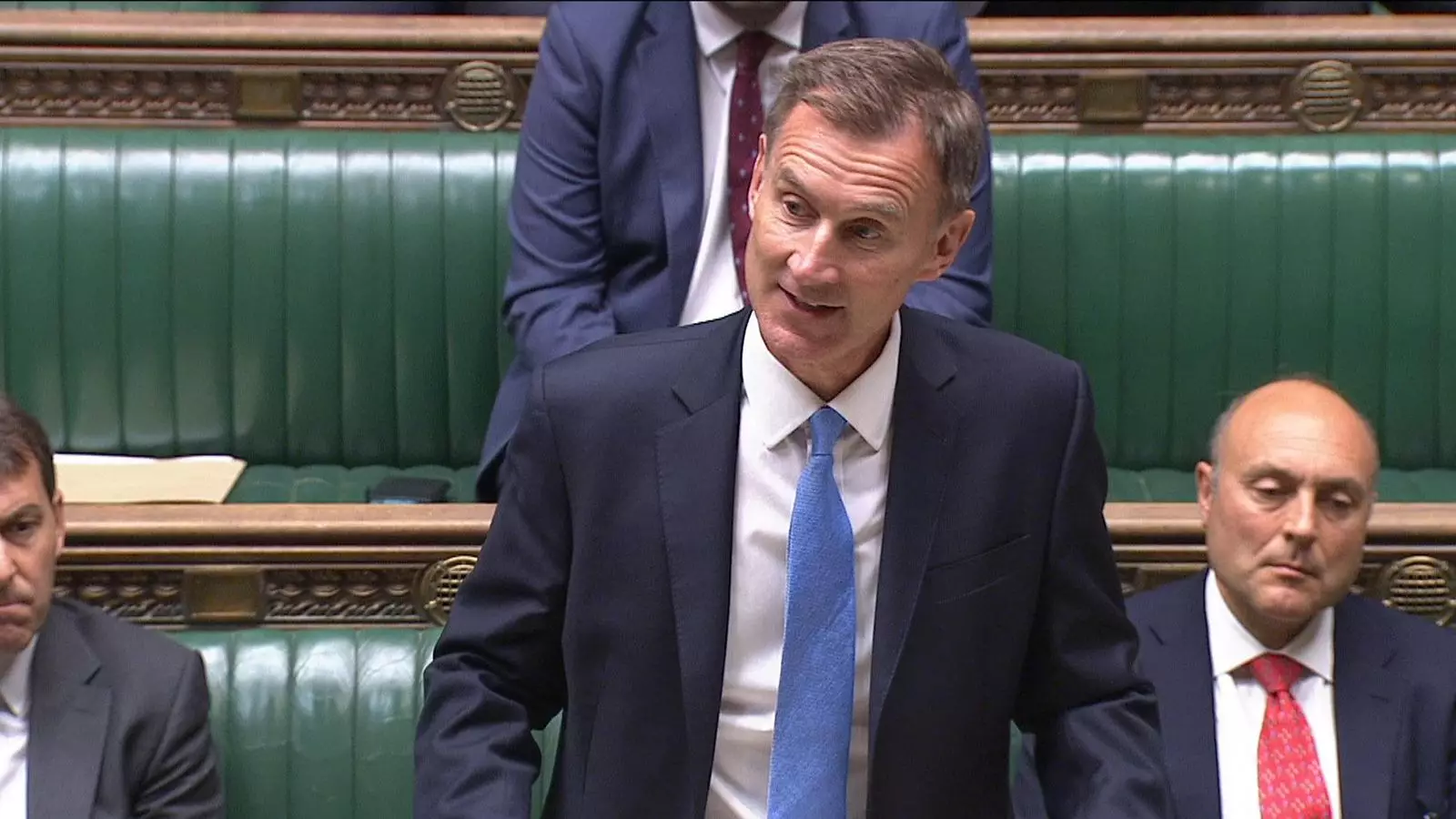Jeremy Hunt, the chancellor, is set to deliver an autumn statement that will outline the government’s plan for the economy. According to Hunt, the economy is “back on track,” but there is still work to be done. He aims to prioritize tax cuts and economic growth in order to boost business investment, create more jobs, and reduce debt. While the government’s plan may sound promising, it is crucial to critically analyze the potential implications and assess whether these measures truly address the needs of the economy and the people.
Hunt’s pledge to reject “big government, high spending, and high tax” in favor of tax cuts sends a clear message. However, it is essential to question whether tax cuts alone can lead to sustainable economic growth. In the past, tax cuts have often disproportionately benefited the wealthy, with little trickle-down effect for the average citizen. Economic growth requires a multifaceted approach that addresses various aspects of the economy, including infrastructure, education, and innovation.
Not everyone shares Hunt’s optimism. Labour’s shadow chancellor, Rachel Reeves, argues that the Tories have a history of implementing high taxes and have failed to address economic inequalities adequately. She asserts that the party’s track record demonstrates their inability to prioritize the needs of working people. Such criticism should not be dismissed but rather taken into consideration to ensure a comprehensive evaluation of the proposed measures.
One of the key measures expected to be announced in the autumn statement is a possible cut to national insurance contributions. The government intends to incentivize work and increase the national living wage. However, it is vital to examine whether these measures go far enough to support those most in need. It is crucial to address the welfare system’s flaws and ensure that individuals are not left struggling to make ends meet despite being employed.
Hunt’s plan includes 110 different growth measures for businesses, such as tax cuts, streamlined planning processes, and improved access to the national grid. While these measures may provide short-term benefits for businesses, it is necessary to consider their long-term impact. Are they merely appeasing corporate interests, or do they genuinely contribute to sustainable economic growth? The focus should be on fostering an environment that supports both businesses and workers.
Hunt aims to reduce taxes while adhering to fiscal rules that dictate debt reduction and borrowing limitations. While tax reduction can provide immediate relief for taxpayers, it is crucial to ensure that it does not compromise public services or contribute to increasing inequalities. Any reduction in taxes should be carefully considered and targeted to benefit those who need it the most.
Hunt’s promise to reform welfare includes a £2.5bn Back to Work plan, which aims to reintegrate 1.1 million people into the workforce. While the intention to incentivize work is commendable, it is crucial to assess the fairness and appropriateness of the proposed measures. Removing benefits from job seekers who are deemed not to be actively seeking work may inadvertently penalize those who are genuinely struggling due to systemic barriers or lack of job opportunities.
Jeremy Hunt’s autumn statement presents a range of measures aimed at promoting economic growth, reducing debt, and reforming welfare. While some aspects may sound promising, a critical analysis is necessary to ensure that these measures address the needs of the economy and the people. Long-term sustainability, fairness, and the well-being of citizens should be at the forefront of any economic plan. It is essential to question the assumptions and rhetoric presented and demand transparency and accountability from those in power. Only through rigorous analysis and scrutiny can we ensure that economic policies truly benefit all members of society.


Leave a Reply